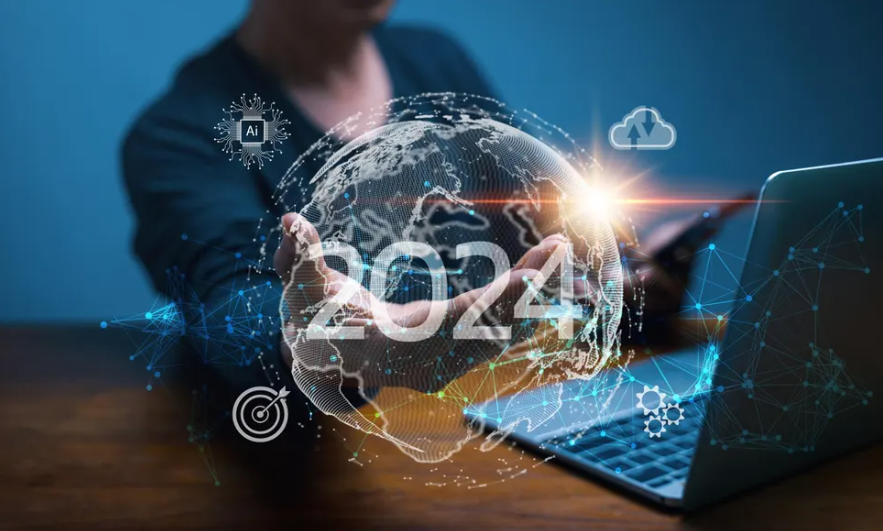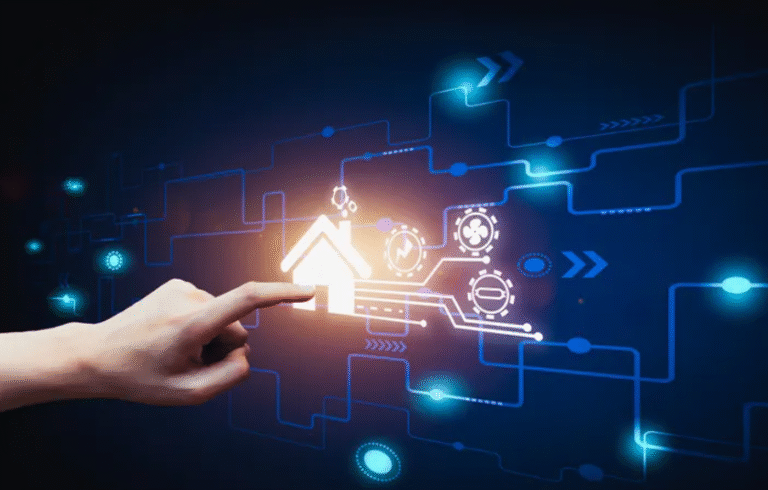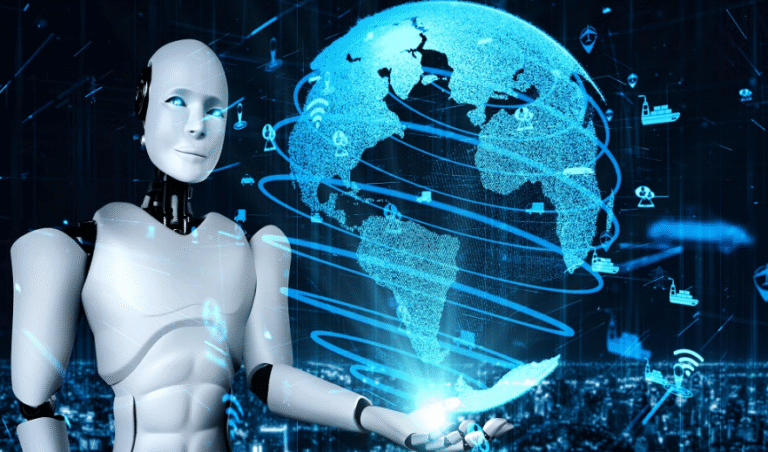The tech landscape is evolving at an astonishing pace, with groundbreaking innovations that promise to transform how we live, work, and interact. As we look ahead, there are several technologies that are set to reshape industries, economies, and our daily lives over the next decade. From artificial intelligence and biotechnology to quantum computing and sustainable energy solutions, the future is brimming with possibilities. In this article, we will explore the most exciting tech innovations to watch in the coming years and discuss how they will define the next decade.
1. The Rise of Artificial Intelligence and Machine Learning
AI and Machine Learning in Everyday Life
Artificial Intelligence (AI) has already begun to permeate various aspects of our lives. From personal assistants like Siri and Alexa to sophisticated recommendation systems on platforms like Netflix and Amazon, AI has proven its utility. However, over the next decade, we can expect AI and machine learning (ML) to evolve in ways that go far beyond automation and predictive analytics.
AI will not only make systems smarter but will also enable personalized experiences in healthcare, education, and finance. For instance, AI-driven healthcare tools can predict diseases before symptoms appear, allowing for early intervention. Machine learning models will also play a critical role in making cities smarter through improved traffic management and predictive maintenance of infrastructure.
See also: The Future of AI: How Artificial Intelligence is Shaping Our World
The Evolution of Autonomous Systems
Self-driving cars and drones are two prime examples of autonomous systems powered by AI. In the next decade, we are likely to see these technologies become mainstream. Autonomous vehicles could revolutionize transportation, reducing accidents and enabling more efficient traffic systems. Drones could transform logistics, allowing for faster deliveries and enabling remote area access for goods and services.
2. Quantum Computing: Unlocking Limitless Possibilities
What is Quantum Computing?
Quantum computing represents a paradigm shift in how we process information. Unlike traditional computers, which rely on binary data (1s and 0s), quantum computers use quantum bits, or qubits, which can exist in multiple states simultaneously. This unique property allows quantum computers to solve complex problems that would be practically impossible for classical computers.
Impact on Various Industries
In the next decade, quantum computing is poised to revolutionize industries such as pharmaceuticals, materials science, and finance. For example, quantum computers could help scientists develop new drugs by simulating molecular interactions at a much faster pace. Similarly, in finance, quantum algorithms could optimize investment strategies by analyzing vast amounts of data in real-time.
3. Biotechnology and Genetic Engineering
Advances in CRISPR Technology
Genetic engineering is another area where groundbreaking innovations are expected in the next decade. The CRISPR-Cas9 gene-editing technology has already shown great promise in treating genetic disorders and modifying crops for improved yields. In the coming years, CRISPR and other gene-editing tools could become even more precise, leading to the eradication of genetic diseases and the development of personalized medicine.
Synthetic Biology and Bio-manufacturing
Synthetic biology, which involves designing and constructing new biological parts, systems, and organisms, is expected to play a key role in various industries. Bio-manufacturing could lead to the creation of sustainable materials, such as biodegradable plastics or biofuels, reducing the environmental impact of traditional manufacturing processes. Additionally, synthetic biology could revolutionize food production, creating lab-grown meats and more nutritious crops.
4. Sustainable Energy Technologies
Renewable Energy Advancements
As the world shifts towards cleaner energy sources, innovations in renewable energy are critical for addressing climate change. Over the next decade, we are likely to see advancements in solar, wind, and hydropower technologies that will make renewable energy more efficient and affordable.
One such breakthrough is the development of perovskite solar cells, which have the potential to outperform traditional silicon-based cells in terms of efficiency and cost. Similarly, wind energy technology is advancing with the development of floating wind farms, which can be deployed in deeper waters where traditional turbines are not viable.
Energy Storage and Smart Grids
The future of sustainable energy also depends on innovations in energy storage and smart grids. Batteries capable of storing large amounts of renewable energy will be crucial for ensuring a stable and reliable power supply. In parallel, smart grids, which use advanced sensors and AI to optimize energy distribution, will allow for more efficient use of renewable energy, even during periods of high demand.
5. 5G and Beyond: Revolutionizing Connectivity
The Rollout of 5G Networks
The rollout of 5G networks is already underway, and in the next decade, 5G will become the standard for mobile connectivity. With faster download speeds, lower latency, and the ability to connect more devices simultaneously, 5G will unlock a range of new possibilities in sectors such as healthcare, entertainment, and smart cities.
For example, 5G will enable the seamless integration of IoT devices, allowing for smarter homes and more efficient industrial operations. In healthcare, 5G’s low latency will facilitate real-time telemedicine and remote surgeries, improving access to healthcare services in underserved areas.
6G and the Future of Connectivity
Looking beyond 5G, researchers are already exploring 6G technology, which promises even faster speeds and more reliable connections. With the potential to enable technologies like holographic communication and advanced AI-driven applications, 6G could further transform how we interact with technology.
6. The Metaverse: Virtual Reality and Augmented Reality
What is the Metaverse?
The metaverse is a collective virtual shared space that combines augmented reality (AR), virtual reality (VR), and the internet. In the next decade, the metaverse could become an integral part of daily life, offering immersive experiences in entertainment, education, and social interaction.
For example, VR could enable virtual classrooms, where students from around the world participate in interactive lessons. Similarly, the metaverse could revolutionize entertainment by offering fully immersive gaming and social experiences. As the technology matures, the metaverse will blur the lines between the physical and digital worlds.
The Role of AR in Everyday Life
Augmented reality is another technology that will become more prevalent in the next decade. AR overlays digital information onto the physical world, creating interactive experiences. From AR glasses to mobile applications, this technology will transform industries such as retail, healthcare, and education by providing real-time information and enhancing user experiences.
7. Blockchain and Decentralized Finance (DeFi)
Blockchain Technology in Various Sectors
Blockchain, the underlying technology behind cryptocurrencies like Bitcoin, has applications far beyond digital currencies. In the coming years, blockchain will likely be used to revolutionize industries such as supply chain management, healthcare, and voting systems. Its decentralized nature ensures transparency, security, and efficiency in data transactions.
The Growth of Decentralized Finance (DeFi)
Decentralized finance (DeFi) is another area where blockchain will have a significant impact. DeFi allows for financial transactions without the need for traditional intermediaries like banks. With DeFi platforms, individuals can lend, borrow, and trade assets in a decentralized, transparent, and secure manner, opening up new opportunities for financial inclusion.
8. The Future of Work: Automation and Remote Collaboration
AI-Driven Automation in the Workforce
Automation driven by AI is set to transform the workforce in the coming decade. While automation will streamline processes and increase productivity, it will also require a shift in how businesses and workers approach tasks. The next decade will likely see AI taking on more complex roles, with machines performing tasks that were once reserved for humans.
Remote Collaboration Tools and the Changing Work Environment
The COVID-19 pandemic accelerated the adoption of remote work, and many companies are now embracing hybrid work models. In the next decade, innovations in collaboration tools powered by AI and AR will further enhance remote work. Virtual offices and real-time collaboration platforms will make it easier for teams to communicate and collaborate seamlessly, regardless of their physical location.
Frequently Asked Questions (FAQs)
1. What are the most exciting tech innovations to look out for in the next decade?
Some of the most exciting tech innovations include advancements in artificial intelligence, quantum computing, biotechnology, sustainable energy technologies, and the metaverse.
2. How will AI impact healthcare in the next decade?
AI will play a critical role in personalized medicine, early disease detection, and improving patient care. AI-driven tools will enable more accurate diagnoses and treatment plans.
3. What is quantum computing, and how will it revolutionize industries?
Quantum computing uses quantum bits (qubits) that can exist in multiple states simultaneously, allowing for the processing of complex problems much faster than traditional computers. It will revolutionize industries like pharmaceuticals, finance, and materials science.
4. How will the metaverse change how we interact with technology?
The metaverse will provide immersive experiences, enabling virtual classrooms, social interactions, and entertainment. It will combine augmented reality, virtual reality, and the internet to create a seamless digital world.
5. What is blockchain, and how will it impact industries beyond cryptocurrency?
Blockchain is a decentralized ledger that ensures transparency, security, and efficiency in data transactions. It has applications in industries like supply chain management, healthcare, and finance.
6. How will automation affect the workforce in the next decade?
AI-driven automation will streamline processes and increase productivity but will also require businesses to adapt. While some jobs may be automated, new roles will emerge as technology advances.
Conclusion
The next decade promises to be a transformative period in the world of technology. From AI and quantum computing to sustainable energy solutions and the metaverse, the breakthroughs we are witnessing today will define the future. As these innovations continue to evolve, they will not only revolutionize industries but also shape the way we live, work, and connect. The future is exciting, and the opportunities for growth and improvement are limitless. Stay tuned, because the best is yet to come.



